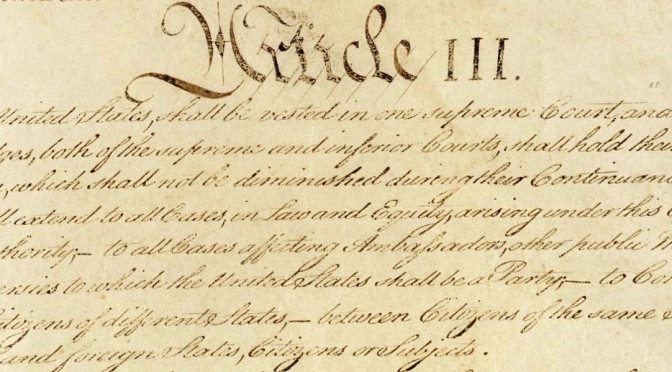At JNSLP’s Feb. 11, 2015 symposium on “Trials and Terrorism: The Implications of Trying National Security Cases in Article III Courts,” an expert panel was convened to discuss trends in sentencing considerations in Article III terrorism prosecutions, and what the implications for these cases portend for american foreign policy. The panel consisted of a judge, a… Continue reading Sentencing Considerations & Their Implications on Foreign Policy
Tag: Preventive Detention
The Implications of Trying National Security Cases in Article III Courts
The Honorable Lewis A. Kaplan draws on his voluminous experience on the federal bench to illuminate some of the special concerns that attend terrorism and national security cases. Kaplan reviews several judicial challenges unique to terrorism cases, including classified information issues and the use of defendants’ statements in the course of prosecution. He concludes that… Continue reading The Implications of Trying National Security Cases in Article III Courts
Administrative Detention of Terrorists: Why Detain, and Detain Whom?
A debate rages in the halls of universities as well as in Congress and national security agencies about whether the United States should enact new “administrative” or “preventive” detention laws – laws that would authorize the detention of suspected terrorists outside the normal criminal justice system. Advocates argue that criminal law alone is inadequate to combat transnational terrorist networks spanning continents and waging violence at a level of intensity and sophistication previously achievable only by powerful states, but that the law of war is inadequate to protect liberty. Jack Goldsmith and Neal Katyal, for example, call on “Congress to establish a comprehensive system of preventive detention that is overseen by a national security court.” Critics warn that new administrative detention laws will undermine liberty, and they assert that criminal law already provides the government with ample tools to arrest, charge, and prosecute suspected terrorists. Center for Constitutional Rights President Michael Ratner writes that preventive detention “cuts the heart out of any concept of human liberty.”


